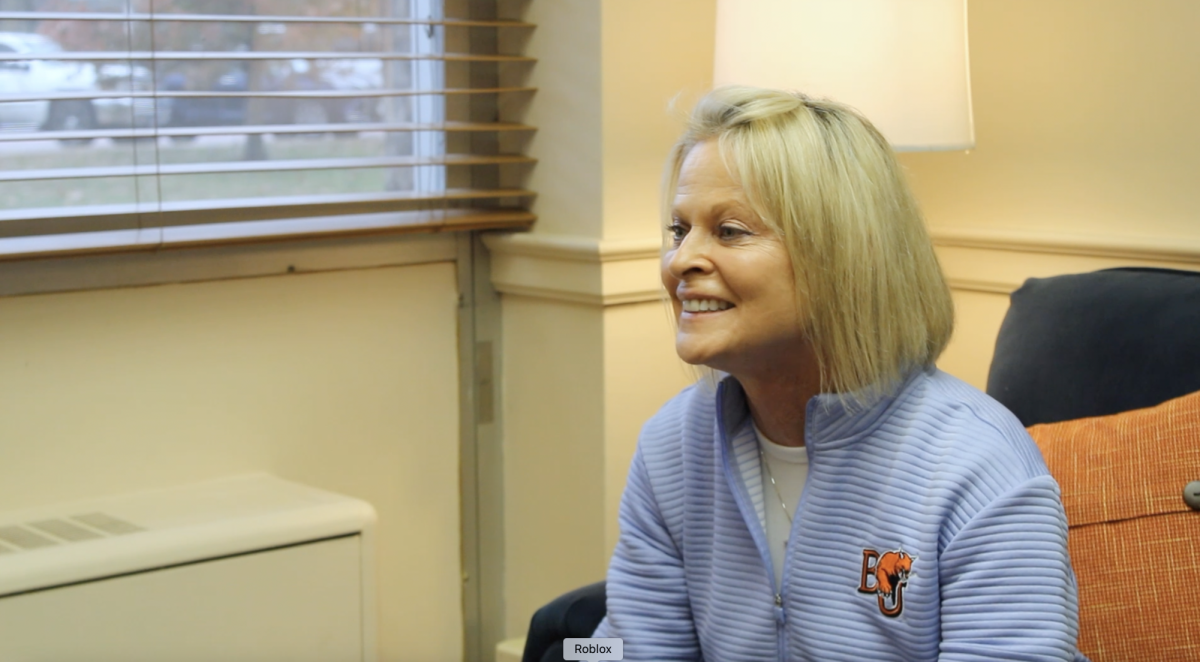For almost an hour, Professor of Biology Darcy Russell stood in front of about 60 students at the Baker University Student Senate meeting Tuesday in Mabee 400.
Russell answered questions about the plus/minus grading scale, which was presented to the Baker University Faculty Senate Feb. 8., addressed concerns and gave information to students about the scale.
The reccomendations for the new grading scale came from the Educational Programs and Curriculum Committee.
“(The EPC committee gets) a lot of proposals that deal with anything curricular … so the grading scale change came to us,” Jacob Bucher, assistant professor of sociology, said.
While some students had questions about the overall effect a plus/minus system may have on the university grade point average, Russell said it would not be a large change.
One of the questions sophomore Breonna Lindberg wanted to know was whether the new grading scale would be implemented universitywide or whether professors would have a choice whether or not to use it.
“Professors, right now, have absolute autonomy in terms of where their grading scale is,” Russell said. “Nothing changes. … No one can force a faculty member to assign a particular grade. It’s not possible.”
While some students were concerned with the proposed scale not being implemented universitywide, other students focused their concern on the impact the scale could have on those students who receive As.
“To get a college A, especially at Baker, you have to put so much work into it already,” sophomore Adam Blevins said. “In a lot of upper-lever science classes, it’s almost impossible to get a 94 or a 95 or to get an A+. When you get an A, you get a 91, or a 92 or a 93. I know I couldn’t have put any more work into a lot of the science classes I had, and I had a 92 or 93. That’s the problem that I have with this.”
Some students, faculty and even some Baker alumni have chosen to discuss the issue through the Facebook group, Students Against Baker University’s New Grading Scale.
“I understand the concern that some feel their GPAs will suffer as a result of this change, but really what we are proposing is that we make grades more accurate, and as a result, more fair to students,” Professor of Psychology Marc Cater said in the Facebook group discussion. “We don’t propose this because we want to harm students; we propose this because we want students to get grades that more honestly reflect their achievement and performance-that’s a good thing, isn’t it?”
Student Senate President Warren Swenson commissioned an ad hoc committee, made up of freshman Josh Hanson, sophomore Hannah Schaake and juniors Tracy Gerant and Shavon Brown, to do more research about the proposed grading scale before members of the Faculty Senate meet again March 1.
“I hope we can have sort of an official statement, either directly from the ad hoc committee, or from student senate,” Swenson said. “I hope we can have something in front of (faculty senate) that is the opinion of students based on what we’ve heard so far and based on the committees research findings.”







